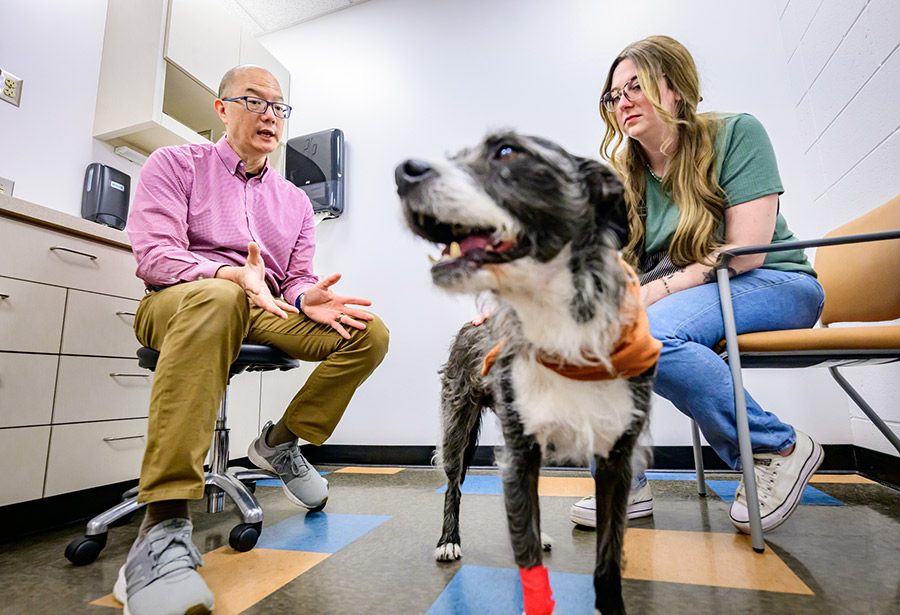Bo Wang joined the Vet Med faculty in 2018. His research has been supported by startup funding from the college and its Department of Comparative Biosciences, the Cancer Center at Illinois, the National Institutes of Health, and Pfizer.
Using about 60 words, how would you explain your main area of research focus to someone sitting next to you on an airplane?
Fats and carbohydrates are essential nutrients that give our body the energy to function every day. In my lab, we study how the body processes these nutrients, and what happens when those processes go wrong. Our research can help us understand and fight common health problems like obesity, diabetes, cardiovascular disease, and fatty liver disease.
How will your work impact quality of life and benefit society both locally and globally?
We hope our work can provide foundation to educate the community how simple changes in everyday eating habits can make a big difference in reducing the risk of long-term health issues like obesity, diabetes and heart diseases. In the long run, we hope our research will lead to new ways to prevent and treat these conditions, so that everyone has the chance to live a longer and heathier life.
What excites you most about the future of research in your field?
I am especially excited about the recent breakthroughs in treating obesity and diabetes with GLP-1 and other hormone-based medications. These have already made a significant difference in many people’s lives. These breakthroughs did not happen overnight. They are the results of years of dedicated scientific research. We know that a person’s genetic background can play a big role in their risk for metabolic diseases. As we continue to understand how our genes influence these conditions, I believe that personalized nutrition has the potential to greatly enhance health outcomes and improve the quality of life for people.
What tools are critical to the work you do?
Our research relies on a combination of human data, mouse models, and cell lines to better understand disease mechanisms.
How has the broader U. of I. research community factored into your success?
We are fortunate to have strong collaborations with U. of I. research core facilities, including animal facilities, DNA service lab, metabolomics, proteomics core at Roy J. Carver Biotechnology center, and tumor engineering and phenotyping shared resource at Cancer Center of Illinois (CCIL). We have collaborated with other research groups on campus, including Drs. Jongsook Kim Kemper, Kai Zhang at MCB, Dr. Jaume Amengual at Food Science & Human Nutrition, Dr. Jonathan Sweedler at Chemistry, as well as with other research groups at other institutes, such as Saint Louis University, UT Southwestern University, University of Illinois Chicago, and University of Arizona, etc.
If your work depends on collaborations with people in other fields of study, what are those fields?
To bring our research closer to clinical treatments, we are working to develop drugs that target the genes we have identified in our animal studies. This kind of work requires collaborations with experts in chemistry and pharmacology.
More about Bo Wang

Bo Wang
Associate Professor
Department of Comparative Biosciences
Education
- PhD, The Ohio State University, Columbus, OH
- MS, Peking Union Medical College, Beijing, China
- BM, Shandong University, Jinan, China
Academic Positions
- Postdoctoral fellow, University of California, Los Angeles




